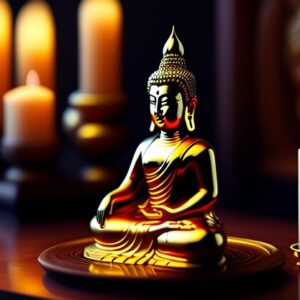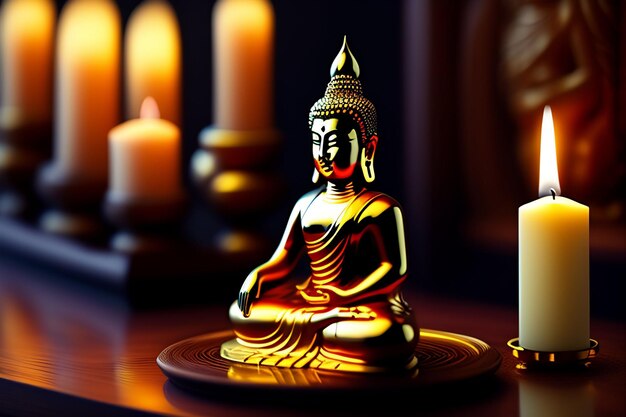

The idea of “free will” is challenging to reconcile with Buddhism. Generally, the concept is considered significant because, in some belief systems, God rewards or punishes us based on our choices between good and evil, implying we have the freedom to choose.
Interestingly, free will also conflicts with certain aspects of Christianity. If God is omniscient, knowing every decision we’ll ever make, then our choices are predetermined, negating true free will. In such a scenario, God rewards or punishes us for decisions we had no control over.
Buddhism, unlike Christianity, doesn’t involve a creator God. Still, because Western culture is heavily influenced by Christianity, the question of free will often emerges as a puzzling issue. There are two primary concerns: whether our will is genuinely free, and how free will is possible if there is no self to make decisions.
Buddhist practice does rest on the idea that we can make choices, aligning somewhat with the notion of free will. For instance, the first chapter of the Dhammapada, titled “The Pairs,” emphasizes alternative choices:
– If a person acts with an impure mind, suffering follows like the wheel of an ox.
– If a person acts with a pure mind, happiness follows like an ever-present shadow.
These verses suggest that choices matter. The Buddha implies choices exist by pointing out the consequences of our actions. In the Dvedhavitakka Sutta, the Buddha elaborates on the process of making choices by categorizing thoughts and abandoning harmful ones, driven by cetana, or “intention.” This intention, the Buddha says, is karma—our choices shape our character, for better or worse.
However, there are limits to our capacity to choose. For example, we can’t control our consciousness to avoid affliction. While we can make choices, those choices are constrained by preceding conditions. Just as a farmer can’t force crops to grow instantly, we can’t will our minds to be free from suffering instantly.
Buddha’s teachings emphasize working within these boundaries. For instance, cultivating meditative states requires practicing ethics. Our actions and their outcomes follow a predictable pattern of cause and effect.
The mind predicts future suffering based on past experiences, guiding us to avoid certain actions. Despite these limits, there’s always some room for choice, even if it’s minimal. Wise decisions can slowly strengthen over time, reducing suffering.
Regarding the concept of anatta, or not-self, it means we don’t possess a permanent, unified self that consciously makes decisions. Our sense of self is ever-changing, interconnected with our surroundings, and fragmented. Choices arise outside of our conscious awareness, which means our conscious mind doesn’t truly create thoughts but observes them.
In Buddhism, free will as an omnipotent force doesn’t fit the observable reality. Our choices are shaped by past conditions, and we’re not free to do whatever we want. Instead of worrying about free will, the focus should be on becoming free from suffering by making wise choices. It’s about understanding conditionality and working within it to reduce suffering.
So, the idea of free will is unnecessary and based on a false view of choice. By choosing wisely, we can foster a state of greater freedom from suffering, which is far more important than the illusory freedom to do anything.
In summary, while free will might seem appealing, it’s not relevant in Buddhism. The path to true freedom lies in making wise choices and reducing suffering, rather than possessing unrestricted freedom. The essential aim is to focus on becoming free from suffering, not on having the freedom to act as we please.